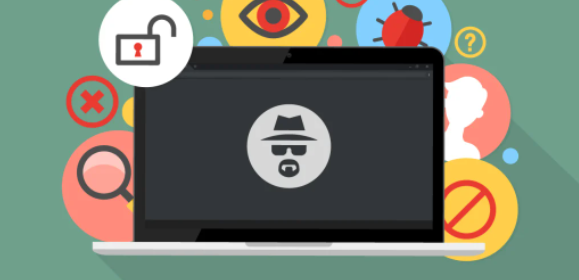Six ways you can be chased while in private Browsing
Private browsing is secure generally speaking; however, can private browsing be hackable? Are you able to tell who viewed a website in private?
Many modern browsers offer the “private browsing” feature that allows you to block the websites you go to, but it’s not an alternative to “proper” devices. Are there ways to track your anonymous browsing habits, and what options are there if they do? Let’s look at how private browsing hides and what it does not.
What is Private Browsing’s purpose?
Table of Contents
If you enable private browsing in your web browser, logging websites you browse ceases. This also stops the making or altering cookies since they may tie the activity to a particular user. Certain private browsing options also remove extensions, but turning them either on or off is possible.
In terms of privacy, this is all it does. It’s like using your browser in the normal way and then deleting your browser’s history and all cookies when you’re done. This is a great way to hide your browser’s activity from other users on that computer; however, it does not stop others from monitoring your browsing.
Can Private Browsing Be Traced on iPhone?
While secluded browsing can be a good way to walloping that uncommon gift for your loved one, can your private browsing be followed? It’s not as effective in stopping people from finding you as other tools are available to you.
1. Over-the-shoulder Tracking Still Work.
The most obvious way of tracking is a person watching your monitor. Private browsing doesn’t generate a force field that stops everyone else from viewing your screen in the end! If you’re able to see it, then so will anyone else, regardless of your browser’s security.
If you’re using a private browser to disguise the websites, you go to, be careful not to become too comfortable. It is important to ensure that no one peeks over your shoulder to observe what you’re up to. This includes buying the perfect birthday present to protect yourself from the other customers at coffee shops.
2. Network Logging Still Tracks You.
Your Private Internet browsing prevents your computer from keeping records about your visit but the information leaving your computer isn’t affected. You’ll leave trails if you’re using a PC connected to an at-work or school network. If you use private browsing to get some gaming online and the logs catch you, they will track your attention and cause trouble. It is necessary to decrypt or redirect your outgoing data to deceive the logs.
3. Websites still track you In Disguised Mode.
If you’re using private browsing to avoid the website from existing, conscious of your identity or where you’re logging in, you might consider rethinking your choices! Your web traffic isn’t protected by additional security when using private browsing. That means the websites you visit will be able to track the location from which you’re connecting. Some websites will block access when you’re one of the countries blocked.
You’ll find these blocks on sites like regionally sensitive TV sites, which only those who are residents of the region can access videos? Private browsing will show your geographic place of residence and won’t get around the restriction.
If you want to fool websites into believing you’re someplace else, you’re likely to require a VPN. If you join the VPN, all your traffic is routed to the VPN server’s location before going out on the internet. So, any website you visit will believe that you’re connecting from the server’s region instead of the location you’re in.
All you need be able to do is join a network in the country that you would like to show up from; then you’re done. If you think a VPN seems like something, you’d like to have, look into completely cost-free VPN services. They are extremely useful when connecting to sites that are not accessible to you in your region. Connect to a VPN server in the country where the service is located, and it’s free for you to surf.
4. “The Middle Man” sees everything.
So far, it’s not to be all that private. Unfortunately, we’ve only been able to cover our data as it departs the place you’re currently in and arrives at your location. We’re yet to discover the hidden portion of the iceberg that encompasses everything within these 2 points. The eyes of others aren’t necessarily malicious.
Your ISP, for instance, will record your online activities to make sure you’re not engaging in any illegal activity. Private browsing does not hide your browsing habits from them blocking tools, and they will be able to catch you.
The most dangerous agents are those engaging in a man-in-the-middle attack. This happens when someone looks into your browsing habits in the hope of stealing information. Private browsing will not shield you from these threats, as they’ll still be able to view all the things you do.
5. Malware and browser postponements can Display You.
Private browsing won’t restrict everything that displays you on your computer, regardless of whether you are aware or not. Malware and browser extensions can observe what you’re doing regardless of whether your private browser is enabled or not.
Any extension that pleats information regarding your browsing activity will perform this task in private mode. This is the reason why you turn on incognito mode on your browser. It disables all extensions automatically. But you can instruct that an extension to open while in the incognito mode.
In this method, it will be intelligent to track you. These malicious programs won’t request permission to track you while you’re private browsing, but. Keyloggers, for instance, will keep track of your actions regardless of your incognito mode.
6. The browser fingerprinting system still works.
If you consider it, your online experience is distinct. Everything from your OS to the components on your PC, someone could use this information to create your profile. Even if you don’t have an already built PC and you’re not a computer, you’ll be identifiable via the browser you use, your plugins, the time zone you’re located in, and your OS’s current language.
The process is known as fingerprinting of the browser. It is the process by which a website collects information about the person you are and how you use the site without having to establish any cookies. Private browsing does not transfer these data, making it a bad option to protect your privacy online.
The private browsing options.
Safely isn’t ideal for protecting your online identity. If this isn’t working, what else can you do?
Consider first using a browser that uses HTTPS as a default. For instance, Chrome now tries to utilize HTTPS when it can. This increases your security internet browsing. If your browser does not support HTTPS as a default feature, or if you’d like to take this issue into your own hands, you can install extensions to aid. For example, you can download HTTPS.
Everywhere, an HTTPS Universally plugin is available for Chrome and Firefox. As the name proposes, the military’s SSL certificate connections wherever feasible. While it’s not the most secure solution, it can be useful. It’s important to note that HTTPS Everywhere could negatively affect certain websites. It is also possible to use proxy servers to hide the exact location of your computer.
However, they don’t secure your data, which means that your web traffic could still be monitored. However, proxy servers help avoid blocking websites. If you’re interested in going completely undercover, you could install to use the Tor browser. This browser doesn’t only protect your information when you search. However, it also passes it through multiple nodes to disguise your actual location.
You cannot select the nodes employed, which makes it a bad choice to bypass geo-blocks, but it offers excellent privacy at no extra cost. Make sure you install a reliable antivirus and keep it current. This prevents keyloggers or trackers from monitoring your web browsing habits.
Protecting Yourself Online.
It is incognito mode a way to be monitored? Unfortunately, although it’s a great option to hide that exciting trip you’re contemplating, it’s not ideal for protecting your privacy online. Other tools are better designed for this purpose, and some are completely free!
If you’re looking to browse with complete privacy and have no worries about privacy, why not use an anonymous browser for free? They’re an excellent way to hide your online footprints without paying.




